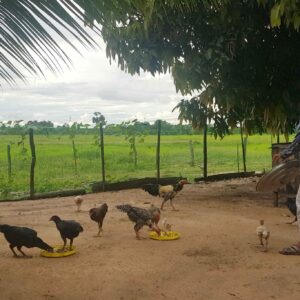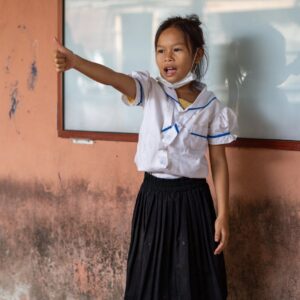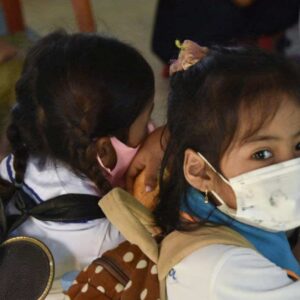In Lao PDR, while the spread of Covid-19 cases remains low in Lao PDR compared to many other parts of the world, the global health emergency still poses risks to the economy, livelihoods, and access to education for some the country’s most vulnerable populations.
Livelihoods, nutrition and education
An assessment by World Vision in Lao PDR in June 2020 found that out of 212 households interviewed, the top three reasons for income disruption were: movement restrictions; concerns about leaving the house; and reduced demand for goods and services. The research revealed that one in every two people reported a reduction of income due to loss of job or reduction of salaries/revenues and that in general, households were experiencing a 42% reduction in monthly income after COVID-19. In a country where 1 out of 5 people are malnourished and 33% of children under five are stunted, such challenges may threaten child development.
Threats to education were also a cause for concern during our own initial assessment of the impact of the pandemic in April 2020. During school closures which lasted 2.5 months, the government developed distance learning programs via TV and online channels, however for children in remote and rural areas, such programs remained out of reach. A lack of technology, internet access and poverty were all contributing factors.
World Vision reported that 31% of children were not studying – a finding that was also present from our own research where we learnt that many parents were taking their children to the fields with them to help with farm work during school closures.
Out of four Grade 5 students we interviewed, all four reported helping their parents with domestic and/or farm work. All reported preferring to study at school over at home and 75% of the students reported that if schools closed again due to Covid or another emergency they would have nobody to help them learn at home. “I want to study but I don’t know how to study if I am not in school,” said one student.
Education for all
To build students’ literacy and independent learning skills, Aide et Action has been increasing access to books and information communication technology for children in isolated areas. Through mobile libraries, we are bringing books into hard-to-reach areas and have also trained volunteers, teachers and school principals on how to conduct fun learning activities with children.

In September 2020, we reached 49 children aged 10-11 in two villages, bringing books and learning materials to enable them to develop new skills and talents, encouraging them to use their own initiative and imagination to develop analytical thinking and scientific knowledge.
Central to our approach is also building capacity among parents to care for and support their children’s development. As the new school year commenced in September 2020, we ran training sessions for 69 parents in two villages on child development and learning. In partnership with Taiwan Fund for Children and Families, we also launched our school meals project which not only offers children more nutritious school meals to support their growth and development but also trains parents and local community members on the value of nutrition and offers them employment opportunities to cook school meals.

As the pandemic endures, we are continuing to research how it is impacting the communities where we work and what short, medium and long term needs our project participants will have. One of goals is to support children and youth to learn the skills they need to take more ownership over their own development.






